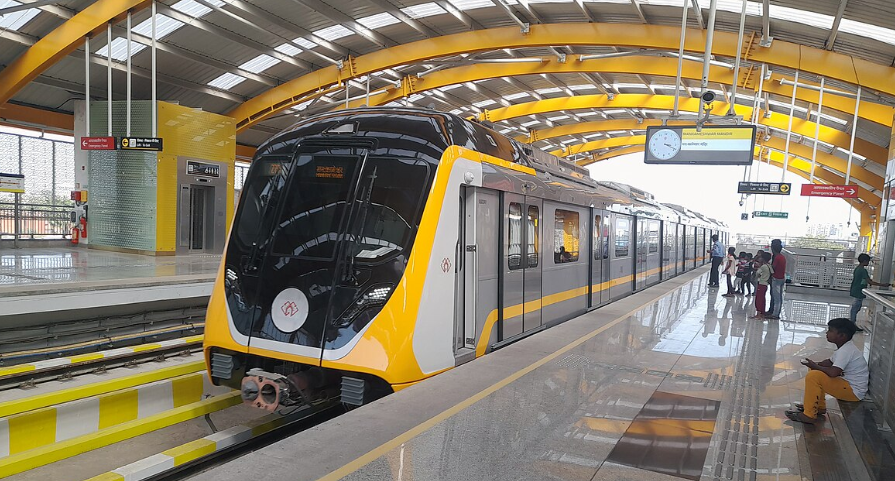Understanding the Controversy Surrounding the #AgraMetroContract
The #AgraMetroContract has recently become a trending topic on X, sparking heated discussions about national security, transparency, and infrastructure development in India. This hashtag refers to the controversy surrounding the awarding of a metro contract in Agra, along with other cities like Bhopal and Indore, to ASIS Guard, a company allegedly linked to Turkey. The issue has raised concerns among netizens, with many questioning the implications of foreign involvement in critical infrastructure projects and the potential risks to national security. In this article, we’ll dive into the details of the #AgraMetroContract controversy, explore public sentiment, and discuss its broader implications.
What is the #AgraMetroContract Issue?
The #AgraMetroContract controversy centers on the decision to award a contract for metro projects in Agra, Bhopal, and Indore to ASIS Guard, a company reportedly based in Turkey. The metro projects are part of India’s ambitious plan to expand urban transportation infrastructure, improving connectivity and reducing congestion in these rapidly growing cities. However, the choice of a foreign company, particularly one with alleged ties to a country some view as having conflicting interests with India, has ignited a firestorm of criticism.
Posts on X reveal a mix of pride, concern, and outrage. For instance, some users celebrated the progress of the Agra Metro, highlighting the promise of fast, reliable, and modern transportation. However, others expressed alarm over the involvement of ASIS Guard, questioning whether the Indian government is prioritizing cost over national security. There are calls for the contract to be canceled, with some users alleging that ASIS Guard’s involvement could lead to sensitive data being controlled by foreign entities or funds being misused to support anti-India activities.
Public Sentiment on X
The sentiment on X regarding the #AgraMetroContract is polarized. On one hand, there’s excitement about the development of metro systems in cities like Agra, which could boost local economies and improve quality of life. For example, a user praised the project as a “proud moment for Agra,” emphasizing the potential for smart and efficient transport. On the other hand, there’s significant distrust and concern about the contractor’s credentials.
Several users have called for greater transparency and accountability from the government. One post demanded that the government address the “dangerous silence” on the ASIS Guard issue, arguing that national security cannot be compromised for lower costs. Another user went as far as labeling ASIS Guard a “terrorist company,” urging the government to cancel the contract to prevent funds from being used against India’s interests. These sentiments reflect a broader concern about foreign involvement in critical infrastructure and the need for rigorous vetting of contractors.
The Broader Implications
The #AgraMetroContract controversy raises important questions about how India balances development goals with national security. Infrastructure projects like metro systems are not just about transportation; they often involve sensitive data, such as passenger information and operational logistics, which could be vulnerable if mishandled. The involvement of a foreign company, especially one from a country with which India has complex diplomatic relations, amplifies these concerns.
Moreover, the controversy highlights the power of social media platforms like X in shaping public discourse. The #AgraMetroContract hashtag has become a rallying point for citizens to voice their opinions, demand accountability, and pressure authorities to act. It underscores the growing role of digital platforms in amplifying public concerns and holding governments accountable.
What’s Next?
As the #AgraMetroContract continues to trend, it’s clear that the public is watching closely. The Indian government, along with relevant authorities like the Uttar Pradesh Metro Rail Corporation and the State Bank of India (mentioned in several X posts), may face increasing pressure to address these concerns. Possible steps could include:
- Transparency Measures: Providing detailed information about the bidding process, ASIS Guard’s credentials, and the safeguards in place to protect national interests.
- Contract Review: Reassessing the decision to award the contract to ASIS Guard, potentially exploring domestic or alternative international partners.
- Public Engagement: Addressing public concerns through official statements or public forums to rebuild trust.
Conclusion
The #AgraMetroContract controversy is more than just a debate about a metro project; it’s a reflection of broader concerns about national security, transparency, and the role of foreign entities in India’s development. While the metro projects in Agra, Bhopal, and Indore promise significant benefits, the concerns raised on X highlight the need for careful scrutiny and open communication. As this issue unfolds, it will be crucial for the government to balance the push for infrastructure development with the imperative to safeguard national interests.
For more updates on this topic and other trending issues, stay tuned to kishanbaraiya.com, where we explore the stories shaping our world.

